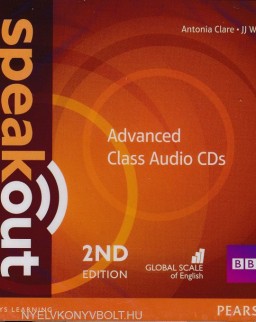Speak Out Advanced Students’ Book 2nd Edition

It can be difficult to choose a text book for advanced learners as many books contain such advanced grammar that students immediately go blank while others simply offer a repetition of the topics students have been discussing since A2 level (not jobs again please!). Also, learners’ expectations differ widely at this level – some wish to advance further while others simply want to maintain their English ability. One advantage of the Speak Out Advanced Students’ Book is that each unit is so packed full of activities that you can pick and choose those that are relevant to your learners and still have plenty of classroom material.
The book is divided into 10 units with both the standard topics such as Places and Opinion but also some more alternative topics such as Justice and Freedom. Where they have used standard ELT topics the writers “have endeavoured to find a fresh angle on it” (Speak Out Advanced Teacher’s Book) and I think they have done this well.
As the name Speak Out suggests, there is an emphasis on speaking and every double page contains at least one speaking activity. But there are also many other occasions where teachers can use texts and photos, for example, as a springboard for discussions.
The book is well illustrated and is generally very attractive with bright, interesting pictures. However, as previously mentioned, each double page is jam packed so may look a bit overwhelming to both teachers and students.
In my opinion, the best part of this book – and an aspect which offers something different to most other standard text books – are the DVD extracts from BBC programmes. These extracts which are around five minutes long are taken from interesting documentaries and programmes such as Gandhi and the Wonders of the Universe. There are activities to complete before, during, and after watching the extracts. The DVD also contains BBC interviews (with scripts) which ask a number of people the same question such as ‘What is the best time of life?’ and ‘What makes you feel free?’. These expose students to a wide range of accents and authentic speech. My students found the videos very informative and interesting and they sparked a lot of discussion as they covered topics they hadn’t previously touched on in class.
As the book was only published this year (2016) the texts and BBC programmes are all on relevant topics that should interest most students. Many of the reading texts are also from true stories such as The Case of the Disappearing Man, which means students can do further reading and research on the stories outside of class. This also makes it easy for teachers to find extra authentic material on the topics. This may be necessary as most texts are short to medium length (in terms of coursebook texts) and I do feel students at this level would benefit from some longer texts.
Overall, I found this an easy and interesting text book to work with. Most importantly, the topics and activities engaged and pushed students, and they were happy with the book.
Gemma Lunn
